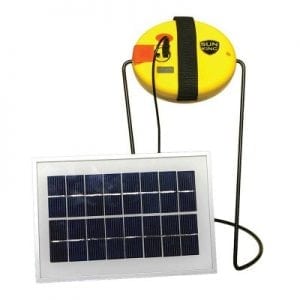
Agriculture
January 18, 2024
Sun King Pro SK-301 Solar Lantern
Read SolutionImplemented by
Sun King

Updated on September 26, 2023
·Created on August 5, 2016
The Outernet Lantern is no longer available. The company has re-branded to Othernet
Outernet Lantern is a satellite receiver, solar-powered aimed at bringing digital content to emulate the Internet (but only one-way direction) to unconnected parts of the world. Outernet Lantern only can download information from the satellite recreating an “offline Internet” that is supposed to bring digital information to unconnected parts of the world to benefit education, health, disaster response, etc. The device then acts like a Wi-Fi router so that many devices can connect and share and download the information. Outernet Lantern operates without any internet connection since the information (digital content) is upload it to the satellites which then can be download it by receivers anywhere in the world free of charge. As mentioned, the service is only accessible in regions where the satellite’s signal can be received and where there is electrical power to enable any form of receivers. Outernet claims to have coverage over 99% of humans on Earth with 1 GB per day.
Outernet is a service that offers a one-way communication of digital content that would normally be found online. However, Outernet’s main business is the receivers (L-band hardware solutions). Outernet provides other hardware solution aside from Lantern (turn-key solution) and previously offered the modular Lighthouse (requires a dish and low noise block) and the Tuner for Raspberry Pi (requires a Raspberry Pi, dish and low noise block). At the moment they only offer DIY RECEIVER which is do-It-Yourself RTL-SDR radio hardware used in Outernet Lantern.
Outernet is based out of Chicago, Illinois, USA
Market Suggested Retail Price
$169.00
Target Users (Target Impact Group)
Distributors / Implementing Organizations
Outernet manufactures and distributes the hardware products though their online webpage. Outernet also manages the uploaded content to support their mission of improving information access in the unconnected parts of the world.
Manufacturing/Building Method
As of August 2016, Outernet is working on the manufacturing of the Lantern to reduce costs.
Media content is shared with end-users from Outernet partners.
Intellectural Property Type
Other
User Provision Model
Users can buy Lantern directly on their website. Access to the information service can be done with specific satellite receivers.
Distributions to Date Status
Unknown. However, as of August 2016, Outernet has distributed a couple thousand receivers with expectations that the release of the Lantern will quickly surpass this. interview with representative
Design Specifications
Outernet uses popular single board computers, such as the CHIP by Next Thing Co and the Raspberry Pi 3. Both computers require about 2W of power for operations. The tuner and amplifier require another half-watt. The signal is a 5 kHz channel with an output level of 18 dBW from the spacecraft.
[caption id="attachment_20453" align="alignnone" width="300"]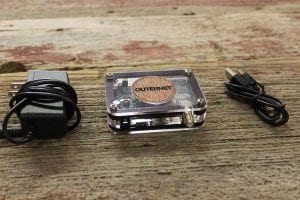 Tuner for Raspberry Pi Source: http://store.outernet.is/products/outernet-tuner-for-raspberry-pi[/caption]
Tuner for Raspberry Pi Source: http://store.outernet.is/products/outernet-tuner-for-raspberry-pi[/caption]
[caption id="attachment_20452" align="alignnone" width="300"]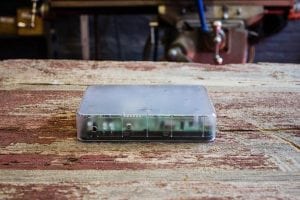 Lighthouse Source: http://store.outernet.is/products/lighthouse-by-outernet-satellite-data-receiver[/caption]
Lighthouse Source: http://store.outernet.is/products/lighthouse-by-outernet-satellite-data-receiver[/caption]
[caption id="attachment_20451" align="alignnone" width="300"]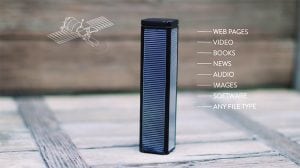 Lantern Source: http://technabob.com/blog/2014/11/19/lantern-satellite-receiver/[/caption]
Lantern Source: http://technabob.com/blog/2014/11/19/lantern-satellite-receiver/[/caption]
Technical Support
Users can contact Outernet directly with any questions.
Replacement Components
Antennas, tuners, amplifiers and parts of the L-band hardware may have to be replaced over time through Outernet or other hardware providers.
Lifecycle
Software/media: indefinite given an end user's digital storage ability
Hardware: 2 - 10 years with a to be determined warranty given users wait for the final shelf-ready version of the Lantern. Any earlier iteration of the Lantern (pre-mass production) would not be covered by a warranty, rather only supported through Outernet forums. interview with representative
Manufacturer Specified Performance Parameters
Unknown
Vetted Performance Status
No official third party vetting, but Outernet has had many regular users confirm reception of ther data broadcast. interview with representative
Safety
Be sure to follow proper installation and control guidelines. Expert advisers suggest that "even though satellite technology is an innovative idea it depends strongly on the environmental conditions, so if it's cloudy or raining, then the service will be unavailable. Because of that, Outernet should not be consider for information services that might be critical, like emergency ads, and any real time communications requirements"
Complementary Technical Systems
Digital media viewing technology is required, such as a computer, smartphone or tablet.
Academic Research and References
None
Compliance with regulations
None
Other Information

Agriculture
January 18, 2024
Implemented by
Sun King
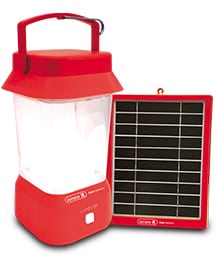
Agriculture
December 16, 2024
Implemented by
Renewit
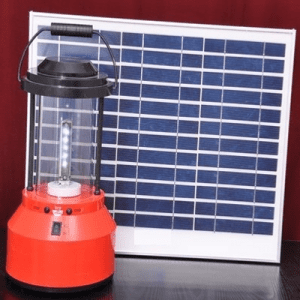
Agriculture
January 20, 2024
Implemented by
Kavita Solar
Have thoughts on how we can improve?
Give Us Feedback
wilfredo.torres says:
Add specific performance parameters related to Quality of Service in the network for diferents applications (data-based, audio, video and multimedia): Average throughput | delay | jitter and packet loss. Also a parameter to know the “time to download” different kind of media.
It is not clear how the final user device (smartphone, tablet, pc) is connected to the Outernet receiver (WiFi, Bluetooth, GSM, etc…)
I think Network Capacity performance parameter is important. We need to know how many users can access concurrently the network through an Outernet receiver.
Wilfredo Torres says:
It’s a wonderfull idea to have a worldwide reachable service by satellite. Even that, satellite technology depends strongly on the environmental conditions, so if it’s cloudy or raining, then the service will be unavailable. Because of that, Outernet is not suitable for critical services, like emergency ads, and any real time communications requirements.